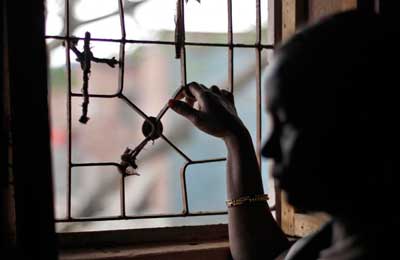
Bahrain fares better in this year's Global Slavery Index
MANAMA, November 21, 2014
Bahrain has fared better than many of its GCC counterparts in a ranking of countries based on the percentage of the population estimated to be in a state of modern day slavery.
The Global Slavery Index 2014, released this week by international anti-slavery organisation the Walk Free Foundation, found that an estimated 9,400 people - or 0.7 per cent of the population - were living in slave-like conditions in Bahrain, which was ranked 47th worst in the world, said a report in the Gulf Daily News (GDN), our sister publication.
This compares with a similar percentage in Oman (45th) and Kuwait (46th), both of which however had a greater number of people estimated to be living in similar conditions, at 25,800 and 23,900 respectively.
Qatar was ranked among the worst offenders for modern day slaves - the fourth worst globally - with an estimated slave population of 29,400, or 1.4 per cent.
Meanwhile, the UAE was ranked 12th worst in the world, with 98,800 slaves or 1.1 per cent of the population.
The survey's definition of modern slavery includes victims of human trafficking, forced labour, debt bondage and those who are used, controlled and exploited by others for profit, sex or the thrill of domination.
Bahrain's governmental response to the problem was given a "CC" rating by the Walk Free Foundation, meaning it has "a limited response to modern slavery, with largely basic victim support services, a limited criminal justice framework, limited co-ordination or collaboration mechanism and few protections for those vulnerable to modern slavery", according to the report.
Migrant Workers Protection Society general secretary Beverley Hamadeh told the GDN that she could not comment on the report directly because the society only works locally and has no reference to the methodology used to get such rankings.
However, she did speak about an internationally recognised list or indicators of human trafficking or forced labour that the society refers to.
"This list includes withholding identity documents, isolation, non-payment of salary, deception about the nature and conditions of the work, intimidation and threats, abusive working or living conditions, excessive overtime, physical and sexual violence and abuse of vulnerability," she said.
"We have had examples of all of these things, but when you are talking about forced labour, it is usual to have at least three to classify as forced labour or human trafficking." - TradeArabia News Service







